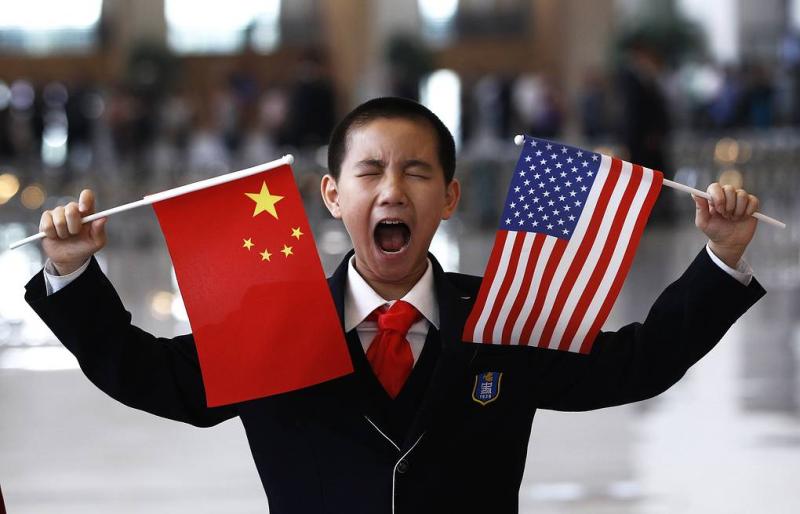
© AP Photo/Shannon Stapleton, Pool/TASS
US military transport aviation commander Gen. Mike Minihan has warned his subordinates that the next two years will see them pick a fight with the Chinese. "I hope I am wrong. My gut tells me we will fight in 2025," he wrote in a memo to some 110 thousand people. General Minihan directly identified his statement with the 2024 presidential elections in the USA and Taiwan.
Notably, this document was published late last week, though dated February 1. Apparently, the US hastened to inform the world about Mike Minihan's disturbing statement. It reflects not the US military department’s viewpoint but highest-level anxiety over China’s possible attempts to establish control over the island it considers its territory, Reuters writes.
Earlier, US Secretary of Defense Lloyd Austin doubted the inevitability of a Chinese invasion of Taiwan. But Washington does not exclude a Chinese military operation against Taiwan. At his country’s recent Communist Party Congress, Chinese President Xi Jinping said People's Liberation Army (PLA) should be turned into a full-fledged military force by 2027, not 2031. The United States has apparently decided to pre-empt and get ready for military action as early as in 2025.
Washington, with its view of China as America’s key challenge, believes that Beijing has been extending diplomatic and military pressure against the island. In their turn, the Taiwanese authorities say they want peace, but will have to defend themselves if attacked. The United States lacks consensus on protecting Taiwan from China’s "aggression". For example, Pentagon spokesman Patrick S. Ryder did not tell Reuters whether America would defend Taiwan or not, as it is not empowered to do so. And President Joe Biden made contradictory statements on the issue, saying the US would stand up for the island or claiming he was misunderstood.
Minihan’s memo has stirred a lot of concern in America. A senior Congress Republican called chances of a conflict with China over Taiwan "very high." "I hope he's wrong,” chairman of the House Foreign Affairs Committee Mike McCaul told Fox News. “Although I think he's right.” He also said if China failed to establish bloodless control over Taiwan, it would "look at a military invasion. We have to be prepared for this." The Republican accused President Joe Biden’s Democratic administration of showing weakness after the Afghanistan mess, which might make war with China likelier. "The odds are very high that we could see a conflict with China and Taiwan and the Indo Pacific," McCall stressed.
In turn, Adam Smith with the House Armed Services Committee said he did not share Minihan's assessment. In an interview with Fox News last Sunday, he stated that a war with China is "not only not inevitable, it is highly unlikely. We have a very dangerous situation in China. But I think generals need to be very cautious about saying we're going to war, it's inevitable." Smith also noted that the United States should be able to deter China from military action against Taiwan, adding he was fully confident that conflict can be avoided through a "right approach."
The American general’s statement about a possible war with China has not gone unnoticed in Europe, either. For instance, Britain’s Daily Mail called Minihan's memorandum shuddering, as he urged officers and soldiers to prepare for a conflict with the PRC by visiting the shooting range to fire “a clip” at a target and “aim for the head.” In Washington, this order spilled into public view just when an aircraft carrier group headed by the aircraft carrier Nimitz was cruising along the South China Sea. Geographically, the Taiwan Strait is part of the South China Sea. Admiral Christopher J. Sweeney said the group’s voyage should demonstrate that the United States has a right to "sail, fly and operate wherever international norms and rules allow."
China, by the way, considers any drills next to its borders a provocation in its backyard. Referring to historical events, the PRC claims jurisdiction over almost all of the South China Sea, conducting its own regular exercises there. In December last year, this area witnessed an incident that almost led to a crash: a Chinese J-11 fighter jet found itself three meters from an American plane.
At this writing, official Beijing has not officially responded to General Minihan's memorandum. But retired Chinese army Senior Colonel Zhou Bo suggested that the two powers prevent escalation by concluding an agreement similar to the US-Soviet one of 1972 aimed to avoid collisions at sea. Zhou is also a senior fellow at China's major Tsinghua University in Beijing.
Experts tend to believe that General Minihan is a high-level commander with an understanding of the strategic situation in the Pacific, with the outcome of any fight largely depending on his forces. This reflects America’s genuine views on what could happen. On the other hand, the Pentagon does not need this kind of frankness, and it caves in. According to experts, Colonel Zhou Bo’s reference to the Soviet-American agreements implies the need for the US and China to reach a similar one. It should be noted that at the moment, Beijing and Washington have no mutual documents of the kind.
Let’s emphasize that despite the entire US peace and cooperation narrative, the Pentagon regularly sends warships to the Asia-Pacific region (APR), contributing to the Beijing-Taipei conflict escalation. Visits by high-ranking American officials to the island by no means encourage the sides to improve relations. Last August, Nancy Pelosi's trip to Taiwan all but entailed a military clash. And now America is about to send House Speaker Kevin McCarthy there, which may already take place in the coming months starting March. This trip may well pave the way for another round of tension or lead to an armed conflict between the United States and China.









